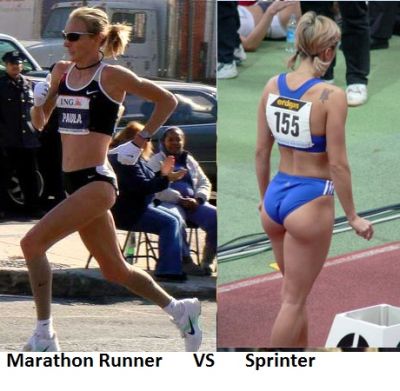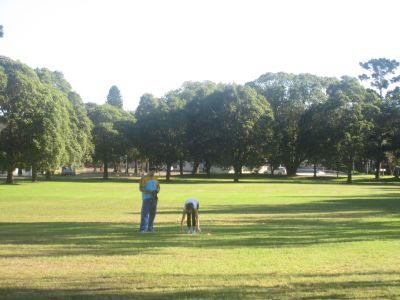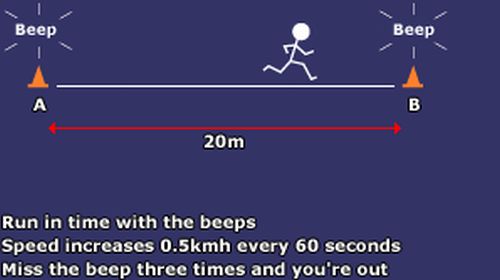
If you’ve been doing long, slow cardio, such as jogging, cycling, or swimming, for awhile without losing much weight or becoming much leaner even though you keep increasing your workouts, there is a simple explanation: too much cardio actually makes you fat. Excessive cardio increases stress hormones and down regulates the hormones, such as growth hormone and testosterone, that preserve muscle. In additon, elevated stress hormones make you insulin resistant, which leads to overeating as well as to eating foods that contribute to insulin resistance, such as sugars and starches.
Despite their appearance, many joggers and cyclists are not really lean. They may be slender because they have little muscle mass, but their body fat percentages are often surprisingly high.. In contrast, sprinters are lean and muscular with low body fat percentages. They have high human growth hormone (HGH) and testosterone levels–good for both females and males. Think back to the last track meet you saw. Who would you rather look like: the sprinters or the distance runners?
3 Good Benefits of Sprinting
1) Sprinting will reduce body fat and strengthen you far more than long, slow cardio because sprinting requires maximal recruitment of muscle. After about 8 seconds, sprinting sends acid signals to the muscles, which activates the fast twitch fibers. Fast-twitch fibers are thicker than slow twitch fibers, and it is fast twitch fibers that grow in size when activated by the right training.
2) Sprinting strengthens your cardiovascular system with brief bursts of high intensity followed by long periods of recovery. You strengthen your skeletal muscles by doing heavy, low-repetition sets with long recoveries. You should strengthen your heart the same way. Sprinting doesn’t cause the continuous stress on the heart that long, slow cardio does.
3) Sprint workouts are short and a lot more fun than long, boring cardio workouts.



